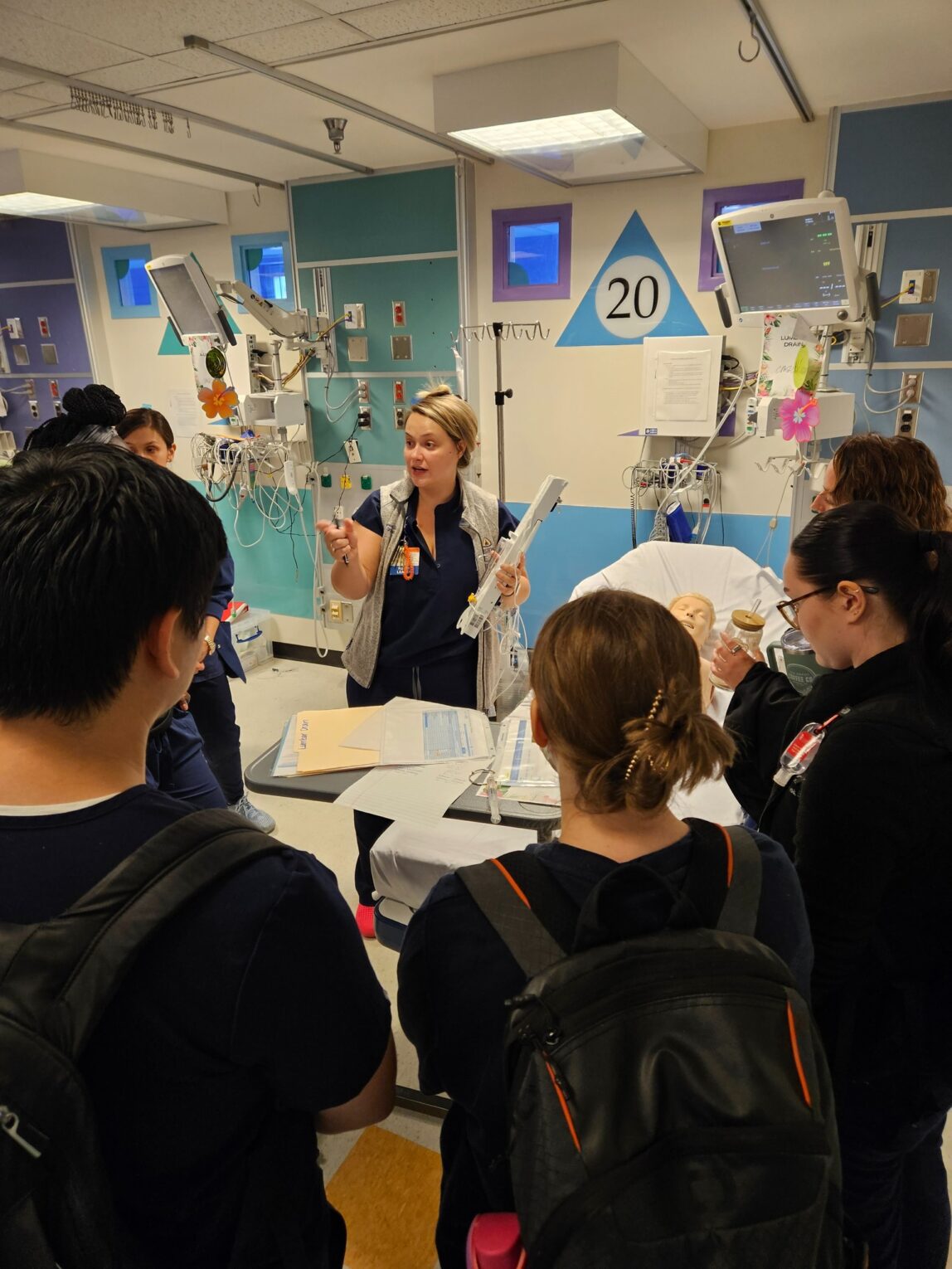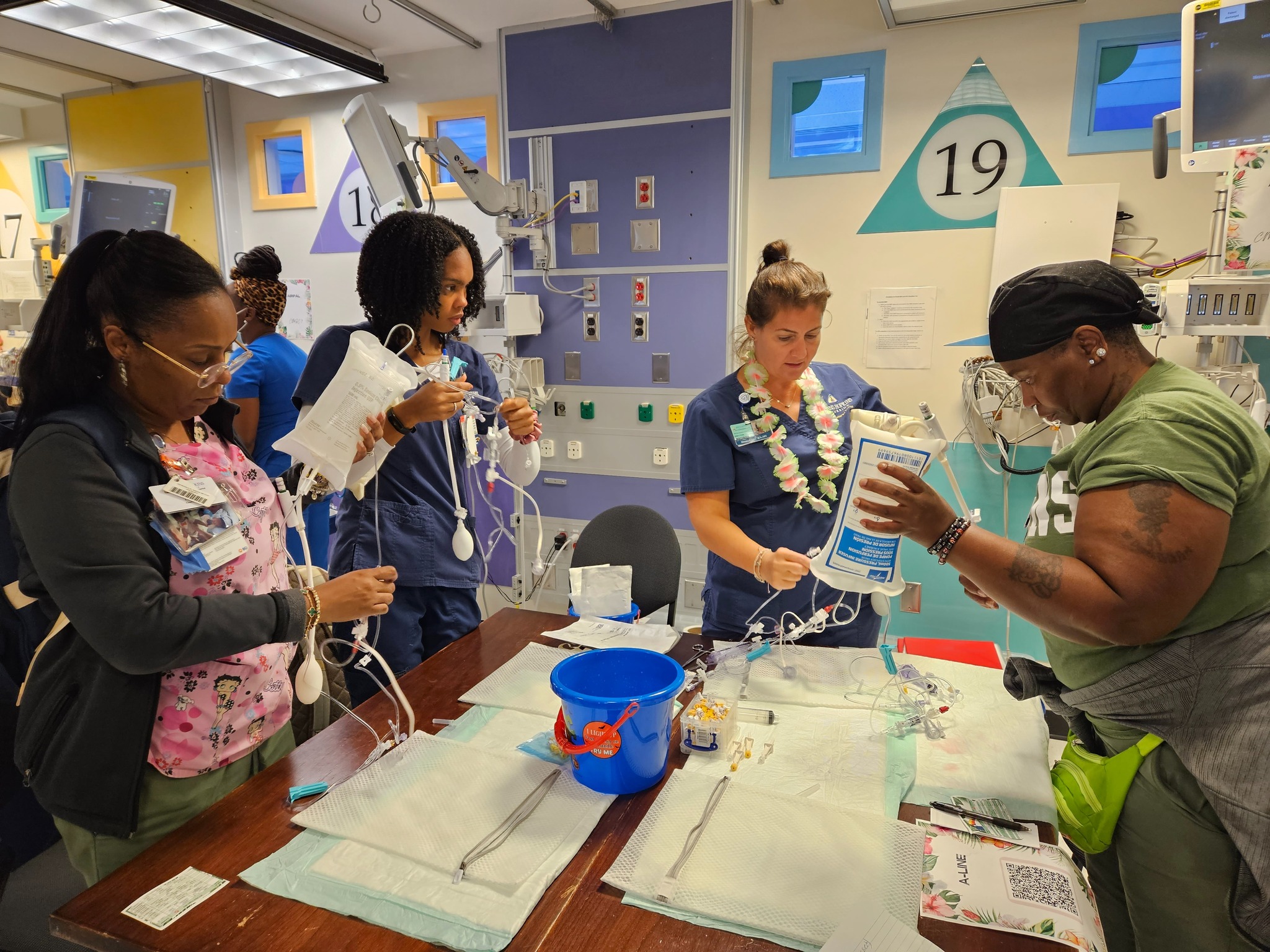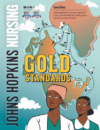It was a momentous two weeks at Johns Hopkins Hospital and Johns Hopkins Bayview Medical Center when some 2,400 nurses, patient care technicians, clinical technicians, and patient aides—more than half of the entire nursing staff—gathered in October for the first ever combined annual skills days.
Nurses not only participated in mandatory annual reviews and assessments of their skills, but they tried out new equipment, learned new policies and procedures, and perhaps best of all, met and bonded with colleagues they might never have otherwise met.
“One of our charges under the leadership of Senior Vice President for Nursing Deb Baker is to harmonize education,” says Julie Seiler, program manager of professional practice programs for the Johns Hopkins Health System. “It was an ambitious rollout and there were bumps in the road, but we actually exceeded our harmonization goals, bringing nurses from
both hospitals together to learn from one another, reducing duplication, promoting standardization,
and educating everyone together in one fell swoop.”
Traditionally, skills days, also called annual competencies, have been the province of individual units, resulting in some duplication. Also, “nurses can get siloed in their specialties,” Seiler says.
“Most of our feedback was very positive,” she says. “Nurses enjoyed meeting new colleagues, exploring new parts of the hospital, learning new things. And many were grateful to review routine skills. We were able to correct cultural inconsistencies they may have gotten comfortable with on their individual units.”
Nursing education is a full-time endeavor at Johns Hopkins Hospital and Johns Hopkins Bayview. “You could give us an entire building and we would be using every inch of it every day because we’re constantly training our nurses,” says Marida Twilley.
“The really gratifying thing is seeing newer and more experienced nurses working together as a team, learning from one another and posing questions you hadn’t even thought of.”
Twilley is one of the two hospitals’ 50 or more nursing practice and professional development specialists (NPPDSs), a relatively new title that reflects the seriousness and scope of their mission: to both broaden the idea of nursing education and to harmonize it—eventually throughout the entire hospital system. She and fellow NPPDS Tamara George, both members of the combined hospitals’ core nursing education team, were the dynamos who spearheaded the new skills days.
“A lot of our team wanted to start small,” Twilley says. “I think we began with just the specialty areas of medicine and surgery at downtown Hopkins. But then it kept snowballing and we said, ‘OK, bring it on!’ ”
The biggest logistical challenge was finding suitable spaces for all of the instruction stations. Another big challenge was moving all of those nurses (the Bayview nurses came by shuttle) from floor to floor through several Johns Hopkins Hospital buildings.

manager in the Neurosciences Critical Care Unit at Johns Hopkins Bayview Medical Center, leads a skills days instructional session.
“We had about 56 opportunities for people to learn something, whether it was an educational poster or one of our vendors training people on new equipment or a chance to practice a hands-on skill,” says George. “We had dozens of instructors, not only nurse educators but bedside nurses, and the emphasis was on hands-on training.”
The most popular station by far was a space created by veteran nurse educator Dauryne Shaffer to help nurses think critically about caring for a potentially suicidal patient. In Shaffer’s scenario, 10 nurses walk around a patient’s room, assessing risks that might contribute to patients harming themselves or others.
“The really gratifying thing is seeing newer and more experienced nurses working together as a team, learning from one another and posing questions you hadn’t even thought of,” Shaffer says.
The skills days team plans to survey nurses next year to identify what they most want to learn. Again, harmonization will be key.
“If we want to offer our patients the best possible care, we want and need to collaborate,” says Twilley. “So the best part of it for us was seeing nurses who’d started the day as strangers not only comparing notes about nursing, but exchanging phone numbers and ending the day as friends.”

